Ahead of its arrival in Dublin, The Life of Pi’s Lolita Chakrabarti talks to RTÉ Entertainment’s John Byrne about her award-winning stage adaptation of the much-loved book.
West End and Broadway success is never a given. But when it comes, it’s a reflection of a show that’s like a magnet to audiences. We’ve seen many musicals go from stage to screen, and from screen to stage - but it takes a certain kind of tale to turn a novel into a film and then a stage show. Like the story in Life of Pi.
The story began in 2001 when Life of Pi, a Canadian philosophical novel by Yann Martel was published. It tells the story of Piscine Molitor (Pi) Patel, a 16-year-old Indian boy who survives 227 days on a lifeboat in the Pacific Ocean - along with a hyena, a zebra, an orangutan and a 450-pound Royal Bengal tiger.

The novel has sold more than ten million copies worldwide, and was adapted for the screen in 2012, with equal success. Then in 2019 came the stage adaptation – another runaway hit.
Life of Pi won five Olivier Awards in April 2022. As well as Best New Play, and Best Actor for Hiran Abeysekera (the original Pi). And in an historic first for the Olivier Awards, the seven performers who puppeteer the Tiger Richard Parker were collectively awarded Best Actor in a Supporting Role.
The show recently completed its run in London’s West End and is currently on tour, running at the Bord Gáis Energy Theatre from Tuesday February 27 to Saturday March 2.
The stage adaptation was written by Lolita Chakrabarti, an actress and an award-winning playwright. Her debut play Red Velvet earned her several awards, and she’s just gone on and on from that, really, while maintaining an acting career both on stage and screen.
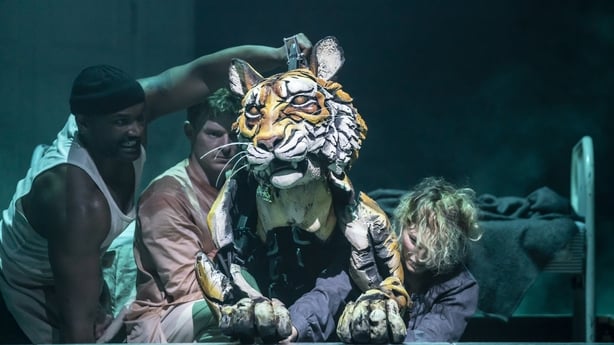
Catching up with her on Zoom - she's currently in rehearsals in New York – she's in great form. And why not? Not many folks get to perform and write at the highest level, but there she is. Her parents must be so proud. But maybe not so much at first.
John Byrne: Hi Lolita. I believe your dad’s a surgeon - but you went into a completely different kind of theatre by taking up acting. Was that a shock to your parents?
Lolita Chakrabarti: I think it was definitely a surprise. And not entirely welcome, when I was 14. I think my parents thought I’d grow out of it. And when I got into RADA - I had a fantastic drama teacher at my school, who said ‘try’.
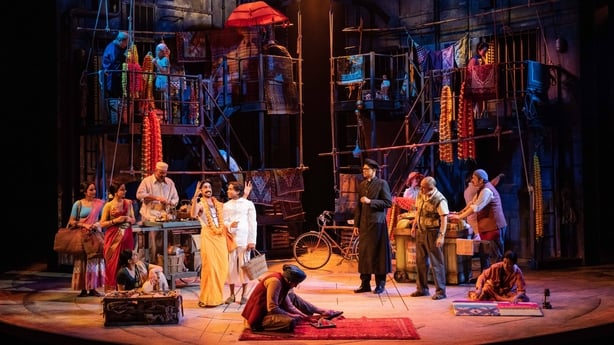
I was going to go to university and she said ‘try for RADA’ and I thought I’d never get in. So I tried and I absolutely loved it from the moment I auditioned.
And when I got offered a place, my dad went to the other theatre - in the hospital - and said to the nurses, ‘Oh, she’s gotten into RADA’ and all the nurses went, ‘Oh my god, that’s amazing’.
And from then on, my dad went ‘Ah! Okay, this is a thing.’ And he’s been very, very supportive ever since.
It’s natural for parents to worry about their children taking risks or doing something dangerous. Which is a nice segue to Life of Pi, as it’s a story that’s quite the adventure.
It’s unexpected, right? I like the challenge of the unexpected. But lucky for me, I don’t realise it’s a challenge until I’m in it. And by the end of it, when we had our first preview in Sheffield I suddenly went - ‘Oh my god, what was I thinking?’
But it took me two years of writing and working on it and getting it on the stage.
The pressure must have been massive. It was a hugely successful book, an equally successful film. And then you’re handing the task of adapting it for the stage. ‘No pressure, eh?’
You’d think, wouldn’t you? I think it’s interesting . . . I’d just done Hamlet. And Hamlet has the expectation of Hamlet, but it’s also so immediate because it’s a new book. So everyone’s hot on the book and they just want to know what you’re going to do.
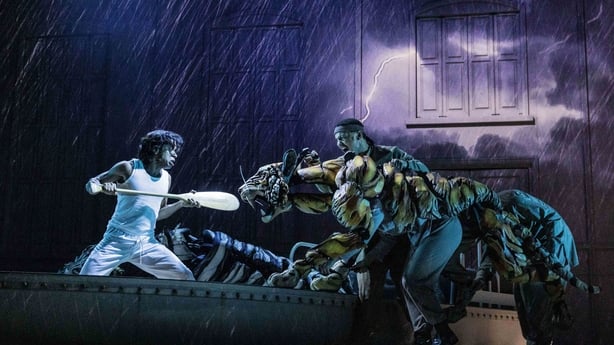
The pressure of that was really strong. Whereas Life of Pi has been around for 24 years now
And so I think, although it had the expectation of ‘How are you going to do that?’ No one could believe we were trying to put it on stage. It think the pressure was less. It’s become more of a loved classic, so it had less heat to it.
To me, ‘classic’ was always a descriptor for something that was produced before I was born . . .
When we were younger, you thought, ‘Oh yeah, classic is something Victorian’ or something you should understand. Whereas now ‘classic’ means universal, so that story can keep going and can keep being interpreted for a new generation.
What do you think makes Life of Pi so popular?
I think it’s the universality of it. It’s a story of survival. It’s a story of struggle and great cost - but ultimately Pi Patel survives. I think that, whether you’re two years old or 102, everybody knows about survival and struggle and suffering, in different contexts.
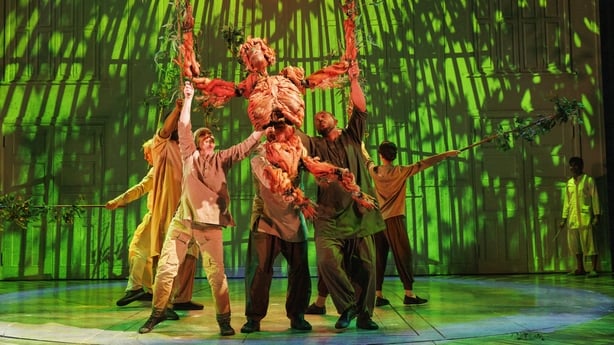
I really noticed after the pandemic, or during the pandemic really, the play took on a new meaning. We’d had a universal suffering. We’d all been shipwrecked and left in an ocean, wondering ‘What is going on? Will we ever make it?’
And so I think that it’s - sorry to use the word too much - very universal. It’s just something we’ll all go through in our lives.
I think the other thing that corresponds with people is that it discusses religion, but in a very light way. But ultimately, it’s about faith. And faith, whether you’re religious, just your life, or what you believe in to get you through another day.
And what can we expect when Life of Pi comes to Dublin?
Ah, you can expect everything! This is a feast - it’s like a piece of art on stage. The design is extraordinary, in terms of the actual set and the costumes. And then we’ve got these puppets that are unlike anything you have ever seen.
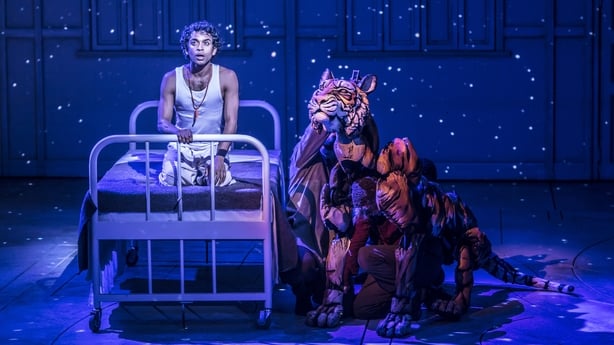
They’re inhabited by puppeteer actors. They’re alive on stage. But they’re very beautiful as well.
We’ve got digital projection, amazing sound and composition. And then at the very heart of it there’s this wonderful story about a boy who emigrates top Canada with his family, the ship sinks, the family dies, and he survives. 227 days in the Pacific Ocean. And we show how he does that.
Life of Pi is at the Bord Gáis Energy Theatre from Tuesday February 27 to Saturday March 2. Tickets are available through TicketMaster.


